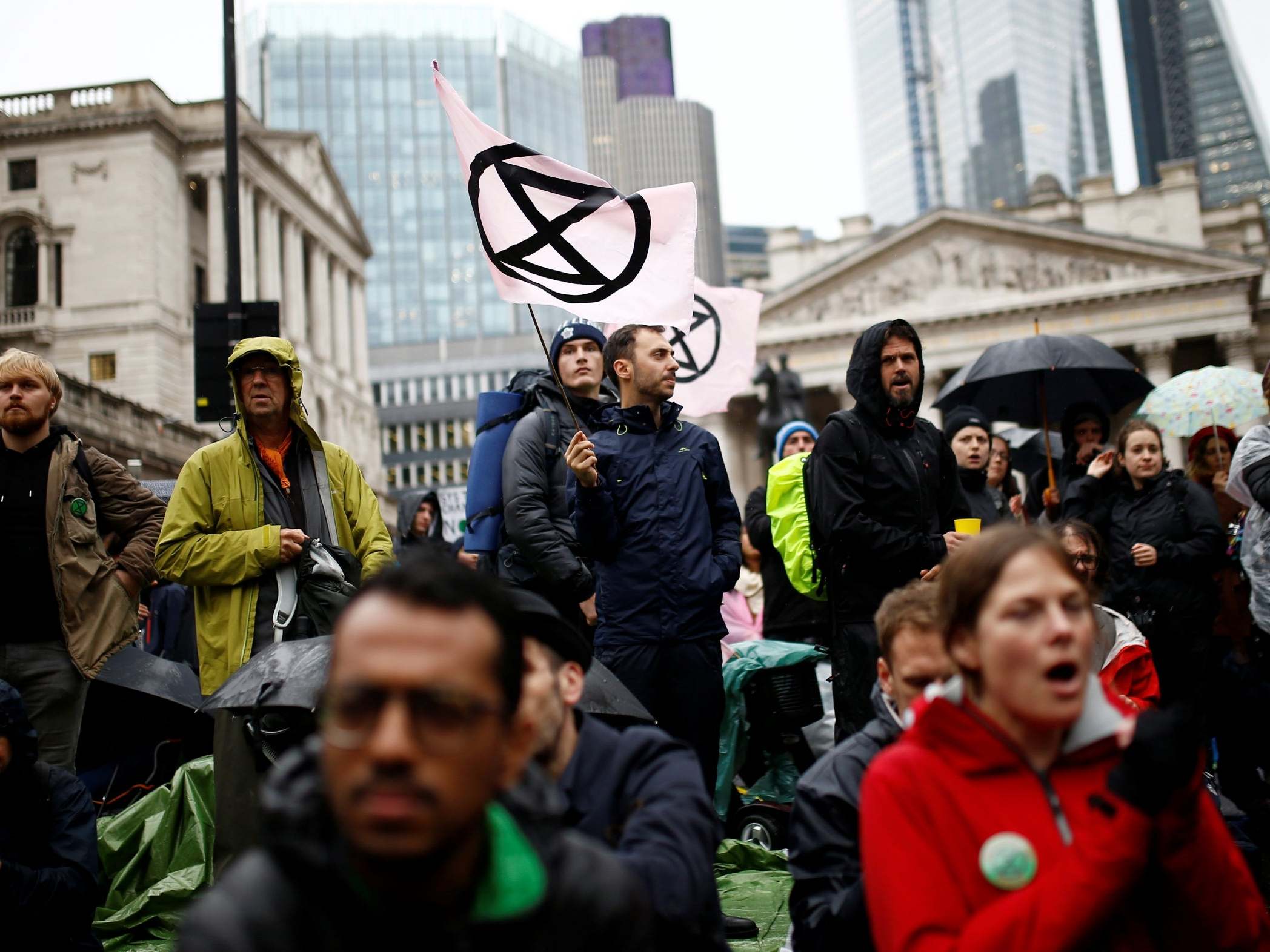Tens of thousands invited to take part in citizens’ assembly to help tackle climate crisis
Extinction Rebellion says assembly may become another government ‘box ticking exercise’

Parliament is forming a citizens’ assembly to tackle climate change, with 30,000 invitation letters landing on people’s doorsteps from 6 November.
A spokesperson for Extinction Rebellion – which has been lobbying the government to create such an assembly – said it was “an important first step towards real democracy in the UK”, but raised concerns the government could simply ignore the advice.
Citizens’ assemblies are a way to get a diverse collection of people together to hear from experts and those with lived experience of the topic being discussed.
Six cross-party committees at the House of Commons commissioned the new Climate Assembly UK to seek views on how emissions can be reduced. Downing Street has already set a target of achieving “net-zero” emissions by 2050. The Scottish government is aiming to do the same, but five years sooner.
A spokesperson from Extinction Rebellion raised concerns that the citizens’ assembly wouldn’t be listened to, saying it could become another government “box ticking exercise”.
“We’re pleased and hope it’ll be the first of many more citizens’ assemblies to come,” the spokesperson said. “However, there are also a number of issues that mean the citizens’ assembly is not sufficient to address the climate and ecological crisis.
“The government isn’t even involved in this citizens’ assembly. This has been set up by parliamentary select committees so it’s unclear whether the citizens’ assembly will really be listened to.”
Work to set up the new citizens’ assembly commenced ahead of parliament being dissolved on 6 November for the general election. It is hoped starting work on the project now will mean the assembly’s report will be available to the new parliament sooner.
Key things that will be discussed at the climate assembly will include how people travel, shop and use energy.
Dave Timms, head of political affairs at Friends of the Earth, said: “Tackling the climate emergency with the speed required will need radical changes to our economy, infrastructure and even to society so it’s important that there is a consensus among citizens.
“Much of what needs to be done already commands widespread public support and it is politicians that just need to bloody well get on with it now.
“Other questions are more tricky and citizens’ assemblies can play an important part in finding policies that will ensure all sections of the public, especially the poorest and most marginalised communities, have a voice in the way forward.”
The assembly will run over four weekends between late January and the middle of March next year in Birmingham. A representative sample of those that respond to the invitation will be selected, with 110 people set to take part.
The outcome of discussions will be presented to the six select committees who will then use the findings to implement recommendations for the government. It will also be debated in the House of Commons.
Rachel Reeves, chair of the Business, Energy and Industrial Strategy (BEIS) Committee, said: “Adopting the net-zero target was a major milestone for the UK, reflecting the strong cross-party support for action on climate change.
“We now need to set out a clear road map for the actions to achieve net-zero. It’s very clear that we will all need to play a part in meeting this target and that we all share a responsibility to future generations to do so.
“Finding solutions that are equitable and have public support will be crucial. Parliament needs to work with the people and with government to address the challenge of climate change.”
Mel Stride, who chairs the Treasury Committee, said: “Public concern around climate change is as high as it has ever been and this is a chance for people from all parts of society to come together, to decide how we as a country can best meet our net-zero emissions target.”
Rebecca Newsom, head of politics for Greenpeace UK, said: “Delivering net-zero and restoring our natural environment will require a Herculean programme of government policies, public and private sector investment and local initiatives over the next decade.
“It’s vital all sections of society are brought together to help develop these ideas and roll out the solutions, and communities that have an immediate, direct stake in the transformation may be particularly well placed to contribute.
“These citizen assemblies are an exciting opportunity to start this process, and we’re very interested to hear the recommendations that come out of them.”
Join our commenting forum
Join thought-provoking conversations, follow other Independent readers and see their replies
Comments
Bookmark popover
Removed from bookmarks